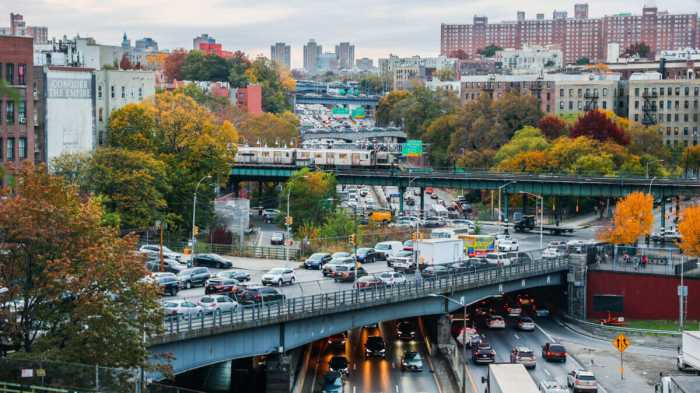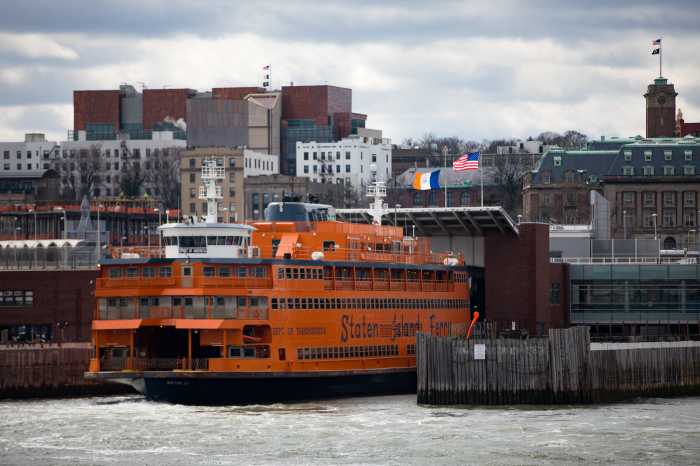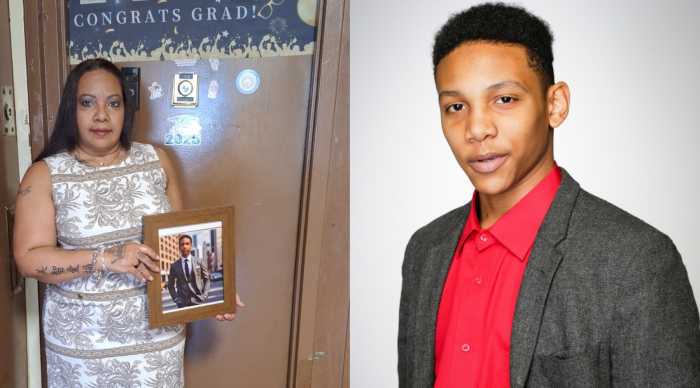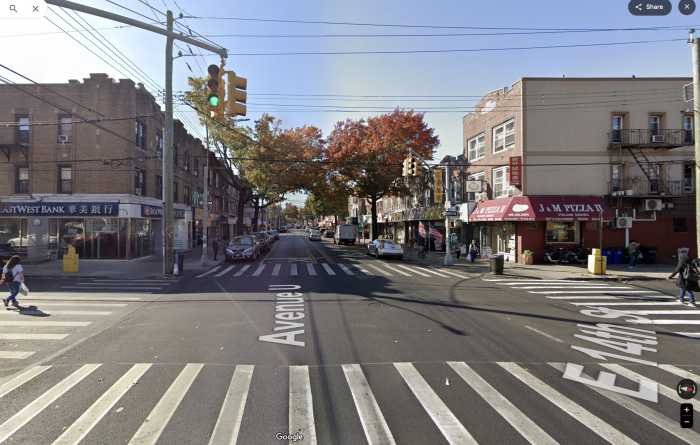An advocacy group recommends the MTA make city buses free for the first week of congestion pricing in a bid to quickly incentivize drivers to switch to mass transit.
Open Plans, which advocates for streets centered more on pedestrians and cyclists and less on cars, released a 10-point “list of demands” that it says can be realistically implemented before the scheduled June start date of congestion pricing, which will levy a $15 toll on most motorists entering Manhattan south of 60th Street. The group says the improvements would help “highlight the positive outcomes [congestion pricing] will bring for all New Yorkers as well as visitors to the city.”
“It’s past time that our elected officials and policymakers start making sure that New Yorkers receive — and know about — the many benefits congestion pricing can and should facilitate, rather than just telling us to eat our vegetables because they’re good for us,” said Sara Lind, Open Plans’ co-executive director. “Congestion pricing will free up space to ensure that we have a more liveable, enjoyable streetscape.”
Number 1 on the group’s list is to eliminate fares on MTA buses and NYC Ferries for the first week of the program.
“Change is hard,” reads the report. “But free rides can incentivize taking public transit and allow hesitant New Yorkers to test out commuting on public transportation, easing some of the anxiety and burden of learning a new routine.”
The MTA is currently in the midst of a fare-free bus pilot that could end as soon as this month, or in the next six months. Five lines, one in each borough, went fare-free in September as part of the pilot program; New York City Transit chief Rich Davey told Our Town NY in December that ridership was up 20% on some of the lines.
Last week, Albany lawmakers in both the Assembly and Senate proposed expanding the pilot to three lines in each borough in the upcoming state budget, at a cost of $45 million, and proposed an additional $45 million to increase bus frequency ahead of congestion pricing. Open Plans endorsed the package in its recommendations list.
The vast majority of commuters into the Central Business District already arrive via mass transit.
An MTA spokesperson said the agency “appreciate[s]” the proposal but did not commit to implementing it.
“We appreciate the proposal from Open Plans and agree that public transportation remains the most affordable, environmentally-friendly, and efficient way of getting around the metropolitan area as congestion pricing will deliver reduced gridlock, improved public health and modernized mass transit,” MTA spokesperson Eugene Resnick said. “The MTA strongly supports expanding equitable access to transit through the Fair Fares program and we encourage anyone eligible to apply.”
Other items on Open Plans wish list
Also included are demands of Mayor Eric Adams, including completing the “Broadway Vision” pedestrianization project and expanding it northward, and implementing similar upgrades on Fifth Avenue.
They also seek new bus and bike lanes on north-south avenues and major crosstown streets, “reclaiming” curb space from parking to other uses, and designating pedestrianized “School Streets” throughout the central business district.
Lind says that the public’s conception of congestion pricing, shaped by politicians and the media, has largely been as a tough pill for drivers to swallow, and that New Yorkers have not gotten enough information on how the plan could improve their lives. The MTA, charged by a 2019 state law with implementing the program, says it will reduce punishing traffic congestion, speed up buses and emergency vehicles, and fund critical improvements to mass transit.
“With the clock ticking, all levels of government, especially the Adams administration, need to act fast so we don’t squander this golden opportunity to improve our city’s most transit-accessible neighborhoods,” said Lind.
The MTA insists the tolling program will be in place by June, but implementation is threatened by a trio of federal lawsuits seeking to overturn it on the grounds the agency didn’t conduct a solid environmental review.
The MTA has persistently defended the robustness of its 4,000-page environmental assessment, contending the agency studied the impacts on “every intersection from here to Philadelphia.”
Read more: NYPD Cracks Down on Subway Crime with Increased Arrests
































